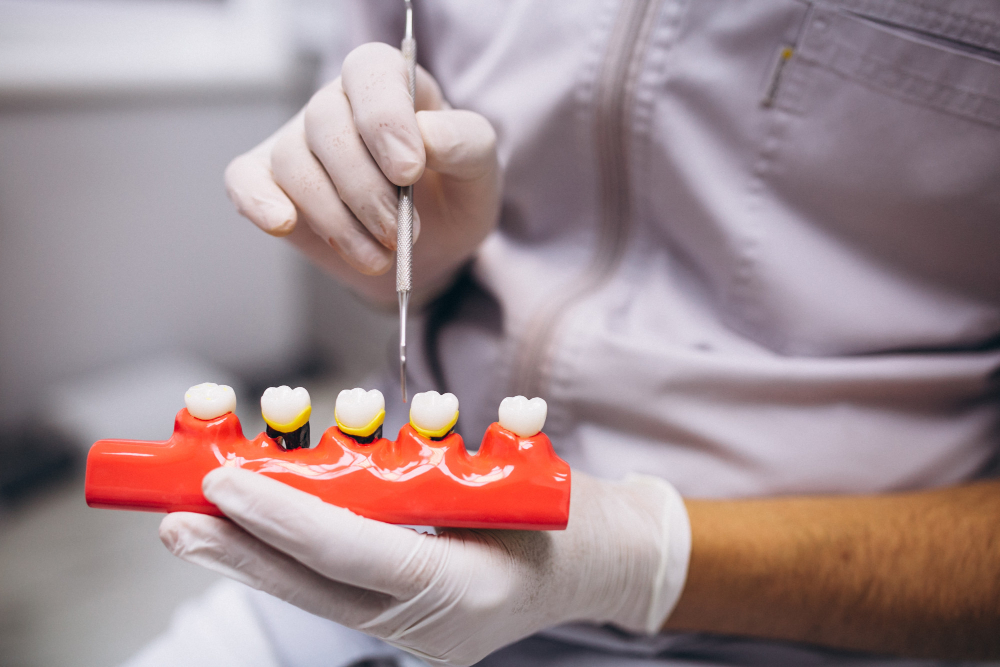
Dental implants have become a cornerstone of modern dental care, offering a reliable and aesthetically pleasing solution for tooth loss. These prosthetic devices are designed to mimic the function and appearance of natural teeth, providing significant benefits over traditional dentures and bridges. This article delves into the fundamentals of dental implants, their advantages, the procedure, and considerations for potential candidates.
What are Dental Implants?
Dental implants are artificial tooth roots, typically made of titanium, that are surgically placed into the jawbone. They provide a strong foundation for fixed or removable replacement teeth that are crafted to match your natural teeth. The implant itself acts as an anchor, much like a natural tooth root, ensuring stability and durability.
Advantages of Dental Implants
- Improved Appearance: Dental implants look and feel like your own teeth. They are designed to fuse with bone, making them permanent.
- Enhanced Comfort: Because they become part of you, implants eliminate the discomfort of removable dentures.
- Easier Eating: Sliding dentures can make chewing difficult. Dental implants function like your own teeth, allowing you to eat your favorite foods with confidence and without pain.
- Improved Oral Health: Unlike a tooth-supported bridge, dental implants do not require reducing other teeth. More of your own teeth are left intact, improving long-term oral health.
- Durability: Implants are very durable and can last many years. With good care, many implants last a lifetime.
- Convenience: Removable dentures are just that; removable. Dental implants eliminate the embarrassing inconvenience of removing dentures, as well as the need for messy adhesives to keep them in place.
The Dental Implant Procedure
The process of getting dental implants involves several steps:
- Initial Consultation: This includes a comprehensive dental exam, during which your dentist will assess the condition of your jawbone and determine if you are a suitable candidate for implants.
- Treatment Planning: Your dentist will create a tailored plan, which may include X-rays and 3D images to ensure precise placement of the implants.
- Tooth Extraction: If you have a damaged tooth that needs to be replaced, it will be extracted.
- Bone Grafting: If your jawbone isn’t thick enough or is too soft, you may need bone grafting. This helps provide a solid base for the implant.
- Implant Placement: The titanium post is surgically placed into the jawbone. As the bone heals, it grows around the implant, a process that can take several months.
- Abutment Placement: Once the implant is securely integrated with the jawbone, an abutment (a small connector post) is attached to the implant to hold the new tooth.
- New Tooth Placement: After your gums heal, your dentist will make impressions of your teeth and create a custom replacement tooth (a crown), which is then attached to the abutment.
Considerations and Risks
While dental implants have a high success rate, they are not suitable for everyone. Good candidates for dental implants generally have healthy gums and sufficient bone to support the implant. They must also be committed to maintaining good oral hygiene and regular dental visits. Chronic illnesses such as diabetes or heart disease, heavy smoking, or a history of radiation therapy to the head/neck area can affect healing and reduce the success of implants.





